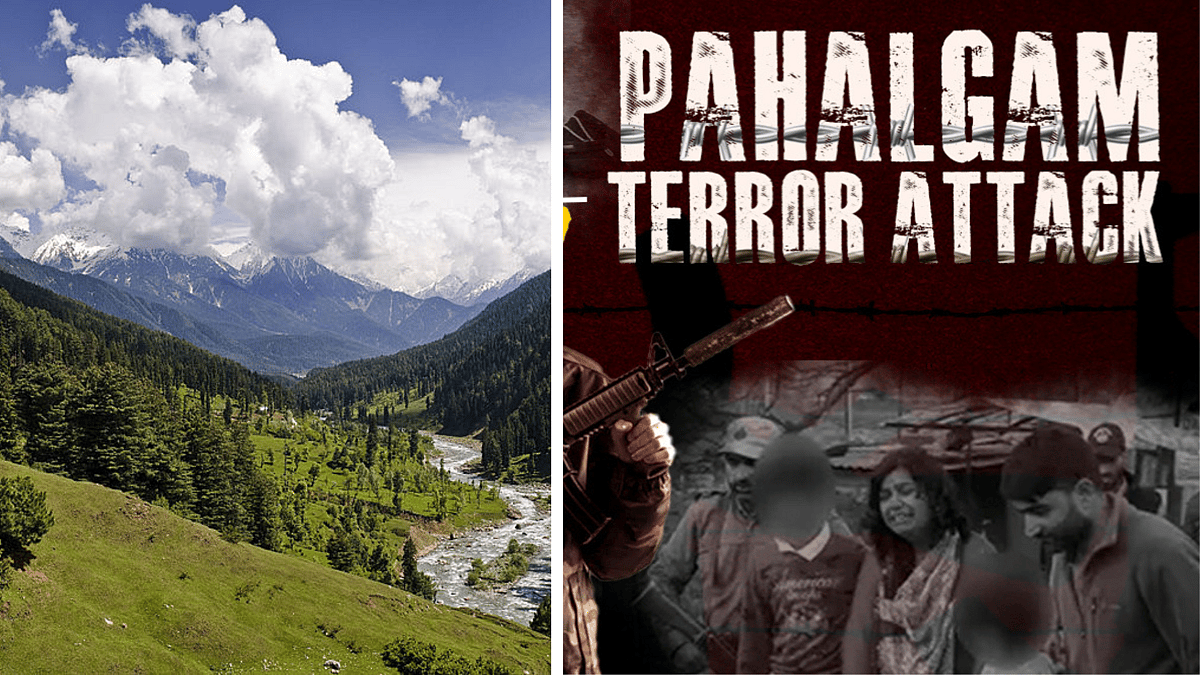Srinagar: The serene meadows of Baisaran, often dubbed “Mini Switzerland” in Pahalgam, turned into a scene of horror this Tuesday. What should have been a tranquil summer outing for nearly a thousand tourists became a blood-soaked tragedy, with 26 innocent lives—including a local pony handler—lost to a mindless terror assault.
This wasn’t just another act of terrorism. It was a loud, brutal signal. The timing of the attack is no coincidence. Only days earlier, Pakistan’s Army Chief, General Asim, addressed a crowd of overseas Pakistanis in Islamabad, invoking the unrest in Balochistan and, more pointedly, the “jugular vein” that Pakistan claims as Kashmir. His speech drew a standing ovation—a chilling reminder that even in economic despair, Pakistan’s military establishment knows how to ignite nationalist flames.
What followed in Pahalgam was likely more than just a strike against civilians; it was a calculated attempt to push the Kashmir issue back into the international spotlight. And in doing so, to distract Pakistan’s own people from inflation, political dysfunction, and global diplomatic isolation. General Asim’s speech seemed like a green light to Pakistan-based terror outfits—Lashkar-e-Taiba, Jaish-e-Mohammad, and Hizbul Mujahideen—to renew their anti-India operations. It’s a strategy we’ve seen before: when the domestic pot boils over, turn the heat outward.
India, under the BJP-led government, has refused to engage with Pakistan on Kashmir since the abrogation of Article 370 in 2019. That move effectively neutralized Pakistan’s long-held talking point. In the years since, a crackdown on separatist elements and the dissolution of key political players in the Valley further silenced voices that once echoed across the border. Pakistan’s silence then was surprising. Perhaps even strategic. But Tuesday’s bloodbath changes that equation.
By targeting tourists—symbols of peace, progress, and India’s post-370 normalization effort—terrorists didn’t just aim to cause fear. They sought to send a message: Kashmir is far from settled. And they may well succeed, not in changing policy, but in rekindling tension. Pakistan has already placed its armed forces on alert, fearing Indian retaliation akin to the 2019 Balakot airstrike post-Pulwama. The parallels are eerie, and the threat of escalation is all too real.
Meanwhile, at home, the Modi government finds itself at a credibility crossroads. The narrative that terrorism has been decisively crushed in Kashmir is now under scrutiny. The public, once reassured by bold claims from the Prime Minister and Home Minister, is asking uncomfortable questions. If terrorism was indeed wiped out, how could such a massacre happen in one of the Valley’s most tourist-friendly zones?
This isn’t just about the failure of intelligence or border management. It’s about the political reality that the Kashmir conflict remains unresolved—and manipulable. The danger lies not just in bullets fired in Pahalgam, but in the strategic calculation behind them. If this attack was intended to draw international attention back to Kashmir, it might partially succeed. But it will come at the cost of innocent lives and a fresh wave of uncertainty in a region desperate for peace.
Pakistan’s silence over the abrogation of special status of Jammu and Kashmir in 2019 by the BJP government put the Kashmir issue in the background, which encouraged the Indian deep state to perceive that Pakistan has perhaps left the Kashmir issue for some time, having realised the political upheaval and economic condition of Pakistan.
Importantly, the Pakistan authorities are also fully convinced that India’s meddling into the affairs of Baluchistan but RE Unable to prove it before the world forums. But the Tuesday terror attack has not only highlighted the K-issue but tried to bring to the notice of the new world leadership the importance of the Kashmir issue between two countries; India and Pakistan.
But the danger of some friction between two countries seems imminent after the terror attack on tourists in Pahalgam in Kashmir . Pakistan on the other hand, has already alerted its air force and army for any misadventure by India like the one after Pulwama attack on CRPF convoy killing 30 CRPF jawans.
The severe crackdown on the separatist groups and elements in Kashmir valley undertaken by the BJP rule in jammu and Kashmir, also jolted Pakistan which resulted in the silencing of their voice in Kashmir valley. The crackdown on the separatist forces in Kashmir valley shocked Pakistan to the extent that they could not hire new leadership of the separatists after the demise of Syed Ali Geelani after revocation of Article 370, 35-A.
But in all probabilities, the friction between Indian and Pakistan is sure to escalate in the wake of the terror attack on tourists in Kashmir on Tuesday. The BJP led government at New Delhi is also expected to be pressurised by the people in the country as the top most leaders of the government like PM Modi and Home Minister Amit shah used to claim that terrorism has been wiped out from the soil of Kashmir once for all.But the Tuesday terror attack disproved the claims of the two towering leaders of the BJP led government . which has equally humiliated the duo
